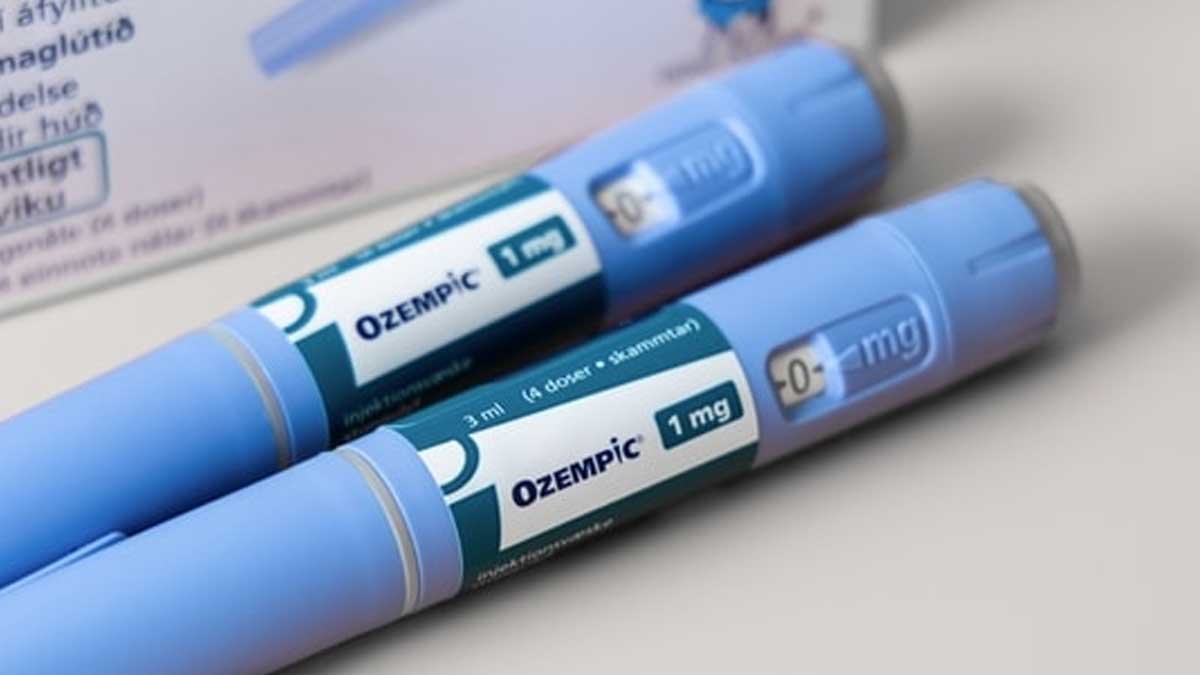- Home
- Billionaires
- Investing Newsletters
- 193CC 1000
- Article Layout 2
- Article Layout 3
- Article Layout 4
- Article Layout 5
- Article Layout 6
- Article Layout 7
- Article Layout 8
- Article Layout 9
- Article Layout 10
- Article Layout 11
- Article Layout 12
- Article Layout 13
- Article Layout 14
- Article Sidebar
- Post Format
- pages
- Archive Layouts
- Post Gallery
- Post Video Background
- Post Review
- Sponsored Post
- Leadership
- Business
- Money
- Small Business
- Innovation
- Shop
Recent Posts
Weight Loss Drugs May Reduce Bone Density: Study

A recent study published in the journal JAMA Network indicates that medications such as Ozempic and Wegovy, popular for weight loss, may lead to reduced bone density. Conducted with 195 adults suffering from obesity, the trial focused on glucagon-like peptide-1 (GLP-1) receptor agonists—a drug class used to manage diabetes. Results revealed that using these drugs without exercise resulted in lower hip and spine bone mineral density compared to those who took a placebo or exercised alone.
Participants, aged 18 to 65, were randomly assigned to one of four groups over a year-long period: one group combined exercise with a placebo, another received only a placebo, a third group was administered Novo Nordisk’s weight loss drug liraglutide, and a fourth group received both liraglutide and exercised. Interestingly, while both the exercise and liraglutide-only groups achieved similar weight loss, the combined group showed better preservation of bone health.
Researchers highlighted concerns about newer medications like semaglutide or tirzepatide—found in Novo’s Ozempic and Eli Lilly’s Mounjaro, respectively—suggesting they may also contribute to decreased bone density due to their similar weight loss effects. Despite liraglutide’s longer history in weight loss treatment, these newer drugs are expected to yield comparable bone density reductions.
The study also touched upon the broader context of GLP-1 drugs, noting their potential benefits in preserving muscle mass while aiding weight loss. For instance, a trial involving semaglutide showed participants losing an average of nearly 15 pounds of lean muscle and 23 pounds of fat over 68 weeks. Altimmune’s experimental drug pemvidutide also garnered attention for potentially minimizing muscle mass loss during weight reduction, potentially mimicking the effects of diet and exercise.
Previous research had already raised questions about the impact of GLP-1 drugs on bone health, particularly among individuals with obesity and type 2 diabetes, who are often found to have lower bone mass. Moreover, studies had suggested a heightened risk of bone fractures in people with type 2 diabetes due to insulin resistance, prompting inquiries into whether medications like Ozempic, originally intended for type 2 diabetes treatment, could exacerbate bone health issues.
Recent Posts
Categories
- 193cc Digital Assets2
- 5G1
- Aerospace & Defense46
- AI37
- Arts3
- Banking & Insurance11
- Big Data3
- Billionaires446
- Boats & Planes1
- Business328
- Careers13
- Cars & Bikes76
- CEO Network1
- CFO Network17
- CHRO Network1
- CIO Network1
- Cloud10
- CMO Network18
- Commercial Real Estate7
- Consultant1
- Consumer Tech180
- CxO1
- Cybersecurity68
- Dining1
- Diversity, Equity & Inclusion4
- Education7
- Energy8
- Enterprise Tech29
- Events11
- Fintech1
- Food & Drink2
- Franchises1
- Freelance1
- Future Of Work2
- Games141
- GIG1
- Healthcare78
- Hollywood & Entertainment186
- Houses1
- Innovation42
- Investing2
- Investing Newsletters4
- Leadership65
- Lifestyle11
- Manufacturing1
- Markets20
- Media193
- Mobile phone1
- Money13
- Personal Finance2
- Policy567
- Real Estate1
- Research6
- Retail1
- Retirement1
- Small Business1
- SportsMoney33
- Style & Beauty1
- Success Income1
- Taxes2
- Travel10
- Uncategorized8
- Vices1
- Watches & Jewelry2
- world's billionaires415
Related Articles
What Healthcare Can Learn from Nvidia’s Success
The tech industry is undergoing a seismic transformation, with two of its...
By 193cc Agency CouncilDecember 16, 2024Salmonella Triggers Recalls of Costco Eggs and Cucumbers
The recent salmonella outbreak has prompted the recall of two major food...
By 193cc Agency CouncilNovember 30, 2024Bird Flu Found in Raw Milk in California, Recall Issued
California health authorities have confirmed the presence of the bird flu virus...
By 193cc Agency CouncilNovember 25, 2024UniDoc Health Launches Mobile ‘Health Cube’ for Remote Care
UniDoc Health, a Vancouver-based company, is revolutionizing healthcare accessibility with the launch...
By 193cc Agency CouncilNovember 23, 2024















Leave a comment